Retailers who take time out from the day-to-day running of their business to plan ahead are able to save money and grow sales
With so many unknowns in today’s world, it may seem that planning is futile. After all, you don’t know what competition is around the corner, what mergers are about to take place, or how Brexit will affect trading. But in actual fact, it is because there is so much economic and political uncertainty that it is vital retailers plan ahead in order to keep their businesses competitive and at the forefront of the sector.
“It’s never been so important to plan ahead,” says Calum Duncan, manager of Crown Stores, in Inverness, Scotland. “Competition can open anywhere now and there are online deliveries too. We’ve got to keep moving.”
He is currently in talks with Booker to convert to a Premier Express in February. “We’ve been planning to move to Premier for six months,” he says.
As part of the change, Calum is investing in a shop refit involving new chillers, freezers, gondolas and shelving. “If you’re looking to achieve big results you’ve got to write everything down and fully plan it out - then you can adapt your original plan until you get one that you’re happy with.”
But it isn’t just the major moves, like refits that can benefit from forward planning. “Most retailers tend to get sucked in to the day-to-day operations and won’t see outside,” says Sid Sidhu, who owns St John’s Budgens in Kenilworth, Warwickshire.
“You need to have enough staff on-site to allow you to start focussing on the business in a very strategic way and start putting plans in place for the next three to six months on what you’d like to do with certain areas of the store, such as replanogramming a particular category.
“That’s what aspiring retailers who want to thrive in this business have to start doing because the pace of change is only ever increasing in convenience and we really need to work hard to make sure we’re relevant to our consumers,” he adds.
Scottish retailer Donna Morgan, who owns Brownlies of Biggar near Edinburgh with husband Bruce, couldn’t agree more. “You’ve got to plan because if you don’t the shop takes over,” she says. “The days of a retailer putting something on a shelf and just expecting it to sell are over. You need to be engaging your customers and putting it out there what you are doing differently and why they should be coming into you rather than the multiple down the road.
“We have a calendar of what we’re going to do at Christmas, what we’ll do at Easter, what we’re going to plan within the business, what we’re going to replace, and so on. If you care about your business you really need to plan, otherwise you just get involved in the day-to-day running.”
Somerset-based Mark Canniford, who owns two Spar stores in Weston-super-Mare, firmly believes that it pays to plan. Store upkeep is one area in which he always thinks ahead.
“When it comes to your capital investments, you need to plan ahead or you’ll end up with a big whack. We know that we’ve got to spend somewhere between £5,000 and £20,000 on a store a year just to keep it up to date,” he says. “Otherwise you just end up with huge bills every four or five years. You need to make sure that you (or your accountant) build in a certain amount of money so that you can maintain and replace.
“I probably save around £10,000 a year per shop just to spend on maintenance and replacement items. When I have to replace something I don’t sit there thinking ‘damn I’ve got to find 15 grand, where am I going to get that from?’ I’ve got it there waiting to be used. The nice thing about that is that it takes the stress out of equipment breaking. That way it’s costing me around £1,000 a month.”
This year, Mark is planning to upgrade his IT system, as he claims the current one is coming to the end of its life.
Donna has a similar attitude to store maintenance. “What we don’t want to do is get to a point where everything needs replacing,” she says. “This year, our big expenditure was our freezers out the back. You have to be investing every year. If you don’t do that the shop will start looking tired.”
She also uses a regular income stream from Best-one to fund store upkeep. “We get My Rewards from Best-one so we use that money to invest in the business - we’ve had the painters in today doing some touching up. If you make a conscious effort to use that money for something then you’re always taking the shop forward.
“You’ve always got to be spending money on it to keep the standard. If you don’t, you’re going backwards - you’re not even standing still. You’ve got to be always looking to see what you can do to improve,” she adds.
Efficiencies are another area that retailers can build into their plan. “Making additional profit or making your business successful isn’t just based around selling stuff, it’s about saving money,” says Mark. “Introducing LED lighting into my stores last year reduced my electricity bills by £5,000. It had nearly an eight month payback, which is amazing.”
Now he is looking at food waste reduction. “Our autumn plan involved moving back from packaged grocery to loose green grocery, so we’ve now sourced all the merchandising and POS we need,” he says. “It’s to do with environmental reasons - getting rid of the plastic packaging - and also waste. We’re looking at how we can reduce waste as part of our review on profitability.”
But he claims that without planning, such efficiencies simply wouldn’t happen. “You can’t just wake up and say: ‘I’m going to reduce wastage today’. You have to plan a way through that task.”
Next up, Mark is planning to add more LEDs to his stores, this time in the chillers. “I’m looking at LED lighting now to be put into my fridges. Lighting is on my plan because electricity costs are going up and up and up. So that’s all been planned in and a budget has been made for it,” he says.
Energy efficiency is also central to Donna and Bruce’s strategy. “We’ve just replaced freezers in the back to help our electricity costs because the ones we had weren’t very energy efficient and put in LED lighting,” says Donna. “We’ve always had LED lights in the front, but Bruce has put motion sensors and LEDs in the back. It’s been a big focus for us.”
Planning ahead can also extend to category and range improvements, Mark points out.
“Last year, I planned in and executed a complete remerchandising and reset of frozen, which has been hugely successful,” he says. “And with wines, we’ve gone from having them differentiated by nation to separating them into red, white and rosé.”
Meanwhile, Donna has been working on bringing her spirits to life. Last year, after making a plan for how to improve the alcohol area, she and Bruce designed a whisky guide book detailing all the products they sell.
“Now, we’re working on a gin one with tasting notes on every gin and the tonics that go with it,” she says. “We’re creating a bit of theatre with the glasses that you serve it in and the botanics that go with it. We’re moving into Scottish tonics too.”
The whisky book is displayed on a whisky barrel in the centre of the off licence zone. But not one to rest on her laurels, Donna continues to make plans for how to keep the idea fresh. “Even with the whisky barrel, you need to constantly be looking at how to change that, so we might put new glassware on it. If you don’t update it, it just becomes part of the furniture.”
Mark argues that retailers who aren’t making plans are losing out. “Certainly in terms of store planning to get it working as efficiently as possible, that can’t just be worked out on the hoof,” he says. “At the end of the year, businesses that don’t plan ahead might make a profit, but those which are driven, and kept under process, and under review will make a lot more money. It saves thousands.”
Donna believes that planning is central to surviving in today’s tough marketplace, and warns that independent retailers who don’t are risking failure.
“I think it’s a very haphazard way of working to not plan ahead,” she asserts. “If you’re running a business these days everything has to be controlled. At the end of the day, you need to be making a note of things, diarising everything and financially working things out. If you don’t do that you’re trading in the dark.”
Indeed, there may appear to be plenty of uncertainties in the world at the moment, but try not to let the direction of your business be one of them.
Retailers share their methods on devising business plans
Donna and Bruce Morgan, who own Brownlies of Biggar, near Edinburgh, plan everything out in advance. Donna advises retailers to put time aside to make plans. “You have to take time out, whether it’s a day away once a week or once a month - whatever you can afford - and look at what other people are doing and think about your business.”
She has several meetings in which she develops a business strategy. “We sit down once a year and work out what we’re doing to drive the business forward and what changes we’re going to do.” In addition to this, she regularly sits down with her Best-one rep to plan what they’re going to do each month. “It’s a constant discussion,” she says. “Our diary goes everywhere with us - what are you going to get done today, what are you doing next week - we make sure it goes into the diary so that it happens. ”
Mark Canniford, who owns two Spar stores in Weston-super-Mare, Somerset, has a rolling programme based around working six months in advance. “I tend to come up with plans of things I would like to see happen,” he says. “You just need a bit of thinking time.”
He keeps a little black book on him at all times where he writes down ideas. “I find the best thinking time is between 4am and 6am. There aren’t many people around and you come up with ideas while you’re buzzing around the store getting things done. Then I sit down with my senior staff, run it through with them and see how they think it might work, where the benefits would be and any issues. I get that feedback and then ultimately make the decision on whether or not to go ahead with it.”

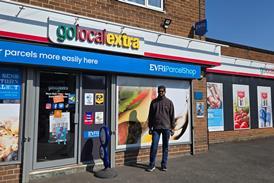





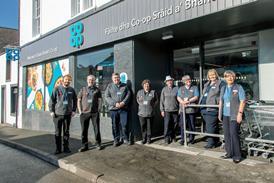
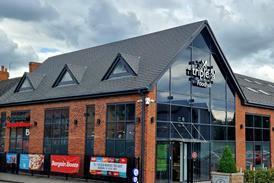
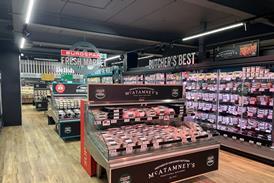

![WG-4003[58]](https://d2dyh47stel7w4.cloudfront.net/Pictures/274x183/4/5/1/353451_wg400358_6083.jpg)




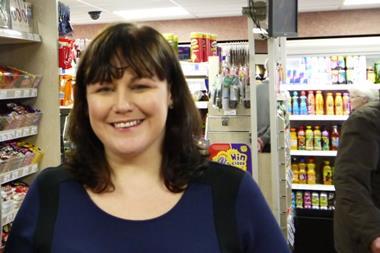



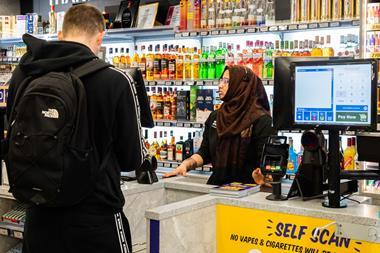



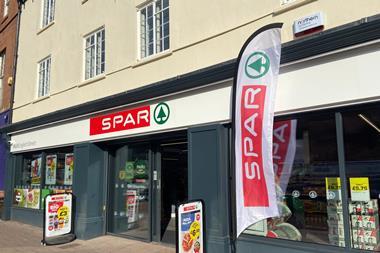
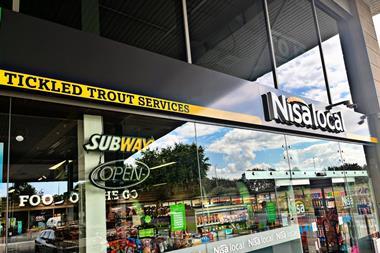


No comments yet